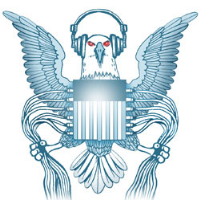Judge Orders DEA Disclosure of U.S. Agencies Using Massive Phone Spying Program but Keeps Most Corporate Colluders Secret

By Nick Rummell, Courthouse News Service
NEWARK, N.J. (CN) — A federal judge ruled that the Drug Enforcement Agency must release some information sought by a privacy group that relates to a secretive government data mining program.
The June 24 ruling requires the DEA to release a list of other government agencies that use the so-called Hemisphere Project (pdf)—a secret program started in 2007 in which the U.S. government collects data on nearly four billion telephone calls a day. The ruling also requires the agency to disclose which AT&T locations are used for the program.
However, the bulk of the requested documents sought by privacy group Electronic Privacy Information Center —including other possible private corporations besides AT&T that cooperate with the government on the program— remain under lock and key.
The Hemisphere Project's existence was made public in 2013, but details on how the program works have been scant. AT&T reportedly manages the call database, which is funded in part by the DEA and the White House's Office of National Drug Control Policy. The program has been touted by government officials as an efficient method to hunt down criminals who have ditched old cell phones to avoid being traced.
A Freedom of Information Act request filed in 2013 by EPIC sought legal analyses and internal memos related to the secret program. The DEA, which mines the call database, provided some documents but withheld more than 100 others.
In response the privacy group filed a lawsuit in early 2014, claiming that it was "hard to believe" the DEA had no documents related to the privacy issues concerning the program.
In the 42-page ruling (pdf), U.S. District Judge Emmet Sullivan wrote that since AT&T's collaboration on Hemisphere has been publicly known for years, further information should be released on which companies have worked on the program.
"Publicly available information about such telecommunication companies' facility locations is as available now as it would be were the DEA to disclose the identities of the companies assisting with Hemisphere," he wrote.
The government has never officially confirmed whether AT&T has assisted with Hemisphere. Verizon Communications may have also participated in Hemisphere, according to court documents.
Sullivan ruled that the DEA must either release information on which facilities participate in Hemisphere, or produce them to the court for an in camera review.
The judge also rejected the DEA's argument that knowing which federal agencies used Hemisphere would help criminals avoid detection via the program.
"The DEA's argument that disclosure of other agencies with access to Hemisphere is equivalent to the disclosure of specific investigatory FBI units and locations is unpersuasive," Sullivan wrote.
However, Sullivan rejected the majority of EPIC's request, criticizing the group's legal arguments and saying that, in some cases, they appeared to be "hasty cut-and-paste" sections from other legal briefs.
Sullivan also sided with the DEA in withholding an email from a deputy assistant attorney general regarding the program, ruling that the message was covered by attorney work-product doctrine because it was prepared in general anticipation of a lawsuit.
"[I]t is objectively reasonable for the government agencies involved [in Hemisphere] to hold a subjective belief that litigation was and is a real possibility," he wrote.
Other groups have filed lawsuits seeking information on Hemisphere. In 2015, the Electronic Frontier Foundation filed a FOIA complaint claiming that documents provided by the U.S. Justice Department were too heavily redacted to "make heads and tails" of the information.
The Hemisphere Project was terminated in 2013 and all the call data has been deleted, according to statements from Justice Department spokesman Patrick Rodenbush in January 2015.
To Learn More:
Electronic Privacy Information Center v. U.S. Drug Enforcement Agency (U.S. District Court for District of Columbia) (pdf)
Forget the NSA; AT&T Helps DEA Collect even more Phone Call Details (by Noel Brinkerhoff, AllGov)
DEA Rejection of Freedom of Information Requests Doubles under Obama (by Noel Brinkerhoff, AllGov)
- Top Stories
- Unusual News
- Where is the Money Going?
- Controversies
- U.S. and the World
- Appointments and Resignations
- Latest News
- Trump Orders ICE and Border Patrol to Kill More Protestors
- Trump Renames National Football League National Trump League
- Trump to Stop Deportations If…
- Trump Denounces World Series
- What If China Invaded the United States?






Comments